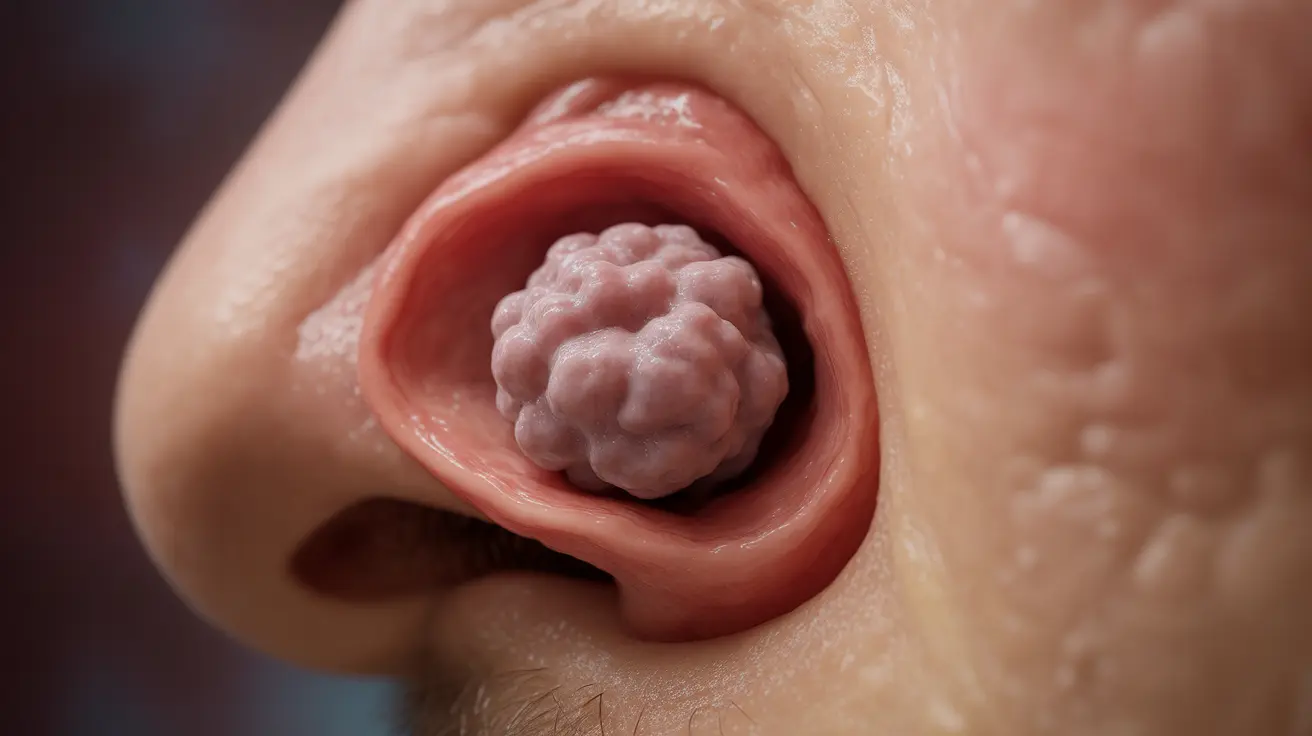Living with nasal polyps can be challenging, causing persistent congestion, breathing difficulties, and discomfort. While many people wonder how to remove nasal polyps yourself, it's important to understand both the possibilities and limitations of natural treatments. This guide explores evidence-based home remedies and lifestyle changes that may help manage nasal polyp symptoms and potentially reduce their size.
Before exploring natural remedies, remember that while these methods may help manage symptoms and potentially slow polyp growth, they should not replace professional medical advice. Always consult your healthcare provider before starting any new treatment regimen.
Understanding Nasal Polyps
Nasal polyps are soft, painless growths that develop in the lining of your nasal passages or sinuses. They result from chronic inflammation and can cause various respiratory symptoms when they become large enough to obstruct airflow.
Natural Treatment Approaches
Nasal Irrigation
Salt water irrigation is one of the most effective natural methods for managing nasal polyps. Using a neti pot or saline spray can help:
- Remove irritants and allergens
- Reduce inflammation
- Improve mucus drainage
- Decrease congestion
For best results, use sterile saline solution twice daily, ensuring proper technique and clean equipment.
Anti-inflammatory Foods and Spices
Certain dietary choices may help reduce the inflammation associated with nasal polyps:
- Turmeric with black pepper
- Ginger
- Garlic
- Green tea
- Foods rich in omega-3 fatty acids
- Colorful fruits and vegetables
Essential Oils and Steam Therapy
Steam inhalation with certain essential oils may provide temporary relief:
- Tea tree oil (antimicrobial properties)
- Eucalyptus oil (decongesting effects)
- Peppermint oil (anti-inflammatory benefits)
Always dilute essential oils properly and use them with caution to avoid irritation.
Lifestyle Modifications
Environmental Changes
Making these adjustments can help prevent polyp irritation:
- Using air purifiers
- Maintaining optimal humidity levels
- Regular cleaning to reduce dust and allergens
- Avoiding known irritants and allergens
Dietary Considerations
Consider these dietary modifications:
- Reducing dairy consumption
- Limiting inflammatory foods
- Increasing antioxidant-rich foods
- Staying well-hydrated
When to Seek Medical Attention
While natural remedies may help manage symptoms, see a doctor if you experience:
- Severe breathing difficulties
- Complete nasal obstruction
- Recurring sinus infections
- Vision changes
- Severe headaches
Frequently Asked Questions
1. Can nasal polyps be removed naturally at home without surgery? While natural remedies can help manage symptoms and potentially reduce inflammation, complete removal of nasal polyps typically requires medical intervention. Home treatments focus on symptom management rather than elimination.
2. What are the best home remedies to reduce nasal polyp symptoms like congestion and inflammation? The most effective home remedies include saline nasal irrigation, steam inhalation with essential oils, anti-inflammatory dietary changes, and environmental modifications to reduce allergen exposure.
3. How effective is nasal irrigation with a neti pot in managing nasal polyps? Nasal irrigation can be very effective in managing symptoms by clearing mucus, reducing inflammation, and removing irritants. While it won't remove polyps, regular use can significantly improve breathing and reduce discomfort.
4. Are spicy foods like cayenne pepper and turmeric helpful for nasal polyps? Anti-inflammatory spices like turmeric may help reduce inflammation associated with nasal polyps. However, some people might find spicy foods irritating, so it's important to monitor your individual response.
5. What lifestyle changes can help prevent nasal polyps from worsening or recurring? Key lifestyle changes include maintaining good air quality, using air purifiers, keeping optimal humidity levels, avoiding known allergens, following an anti-inflammatory diet, and practicing regular nasal irrigation.




